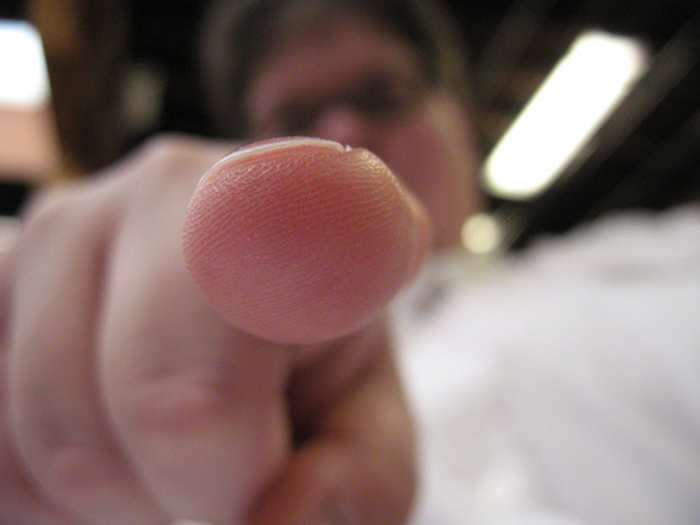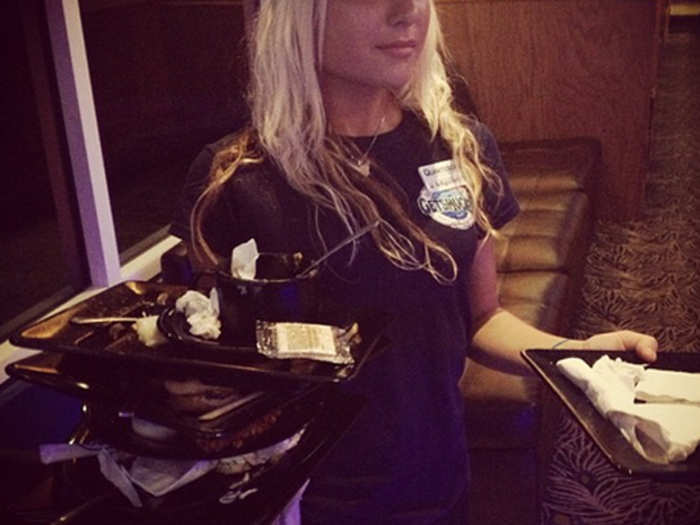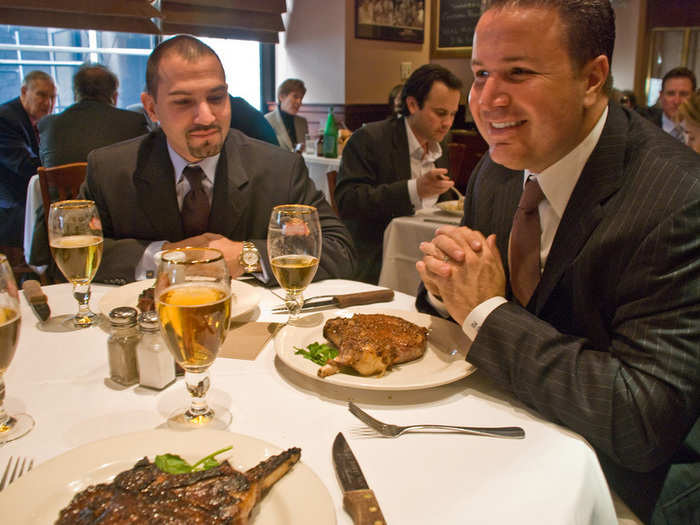15 Business Etiquette Rules Every Professional Needs To Know
Always say your full name.

Always stand when you're being introduced to someone.

"Standing helps establish your presence. You make it easy for others to ignore you if you don’t stand. If you are caught off guard and cannot rise, you should lean forward to indicate that you would stand, if you could."
Only say "thank you" once or twice during a conversation.

"You need to say it only once or twice within a conversation. Otherwise, you may dilute its impact and possibly make yourself seem somewhat helpless and needy."
Send separate thank you notes to everyone involved.

You should send thank you notes within 24 hours and you should send separate notes to everyone you want to thank.
"Before you choose between email and handwritten notes, consider that regular mail may take several days to get to its destination while email arrives almost immediately. This time difference can be important after a job interview, if the hiring decision is being made quickly."
Never pull out someone's chair for them.

It's OK to hold open a door for your guest, but Pachter says you shouldn't pull someone's chair out for them regardless of gender. In a business setting, you should leave those social gender rules behind.
"Both men and women can pull out their own chairs."
Don't cross your legs.

Both men and women do it, but it can be distracting and even too sexy for a professional setting, says Pachter.
"The bottom line, however, is health related: crossing your legs is bad for your circulation because it increases the pressure on your veins."
Keep your fingers together when you point.

"Point with an open palm, and keep your fingers together. If you point with your index finger, it appears aggressive. Both men and women point, but women have a tendency to do it more than men."
Always break bread with your hands.

Pachter says you should never use your knife to cut your rolls at a business dinner.
"Break your roll in half and tear off one piece at a time, and butter the piece as you are ready to eat it."
Do not push away or stack your dishes.

"You are not the waiter. Let the wait staff do their jobs."
Never ask for a to-go box.

"You are there for business, not for the leftovers," Pachter writes. "Doggie bags are okay for family dinners but not during professional occasions."
Keep the food options balanced with your guest.

This means that if your guest orders an appetizer or dessert, you should follow suit.
"You don’t want to make your guest feel uncomfortable by eating a course alone," Pachter says.
If the host follows certain dietary restrictions, consider the restaurant they're taking you before ordering.

"Most people do not impose their dietary choices on others. Nevertheless, you can often judge what to order by the type of restaurant she chooses."
For example, if your boss is a vegetarian but chose to meet you at a steak house, Pachter says "by all means you can order steak."
Know where to properly place plates and silverware.

Remember that "left" has four letters and "right" has five letters.
"Food is placed to the left of the dinner plate. The words food and left each have four letters; if the table is set properly, your bread or salad or any other food dish, will be placed to the left of your dinner plate. Similarly, drinks are placed to the right of the dinner plate, and the words glass and right contain five letters. Any glass or drink will be placed to the right of the dinner plate."
"Left and right also work for your utensils. Your fork (four letters) goes to the left; your knife and spoon (five letters each) go to the right."
Also, think "BMW" when trying to remember where to place plates and glasses. The mnemonic BMW here stands for "bread, meal, and water" so remember that "your bread-and-butter plate is on the left, the meal is in the middle, and your water glass is on the right."
The host should always pay.

"If you did the inviting, you are the host, and you should pay the bill, regardless of gender. What if a male guest wants to pay? A woman does have some choices. She can say, 'Oh, it’s not me; it is the firm that is paying.' Or she can excuse herself from the table and pay the bill away from the guests. This option works for men as well, and it is a very refined way to pay a bill."
"However, the bottom line is that you don’t want to fight over a bill. If a male guest insists on paying despite a female host’s best efforts, let him pay."
Prepare a polite exit.

Pachter says you need to be the one talking as you're making the exit. "Remember to leave when you are talking. At that point, you are in control, and it is a much smoother exit."
You should also have "exit lines" prepared in case you need to leave a conversation. You can say "Nice to meet you" or "Nice talking to you" or "See you next week at the meeting."
You can also excuse yourself for a bathroom break, to get food, or say you wanted to catch someone before they leave.
But don't worry too much if you make a mistake:

Popular Right Now
Advertisement